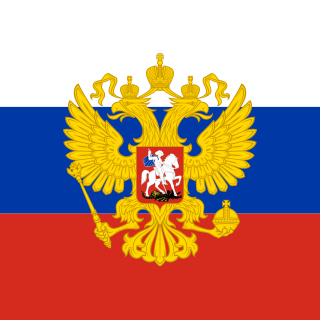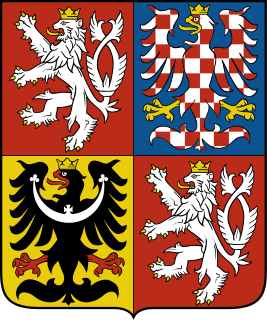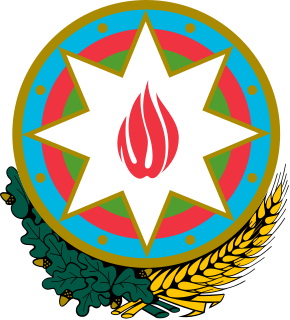
Naturalization is the legal act or process by which a non-citizen of a country may acquire citizenship or nationality of that country. It may be done automatically by a statute, i.e., without any effort on the part of the individual, or it may involve an application or a motion and approval by legal authorities. The rules of naturalization vary from country to country but typically include a promise to obey and uphold that country's laws and taking and subscribing to an oath of allegiance, and may specify other requirements such as a minimum legal residency and adequate knowledge of the national dominant language or culture. To counter multiple citizenship, some countries require that applicants for naturalization renounce any other citizenship that they currently hold, but whether this renunciation actually causes loss of original citizenship, as seen by the host country and by the original country, will depend on the laws of the countries involved.

The president of the Russian Federation, is the supreme head of state of the Russian Federation, as well as the commander-in-chief of the Russian Armed Forces. It is the highest office in Russia.
Nationality law is the law of a sovereign state, and of each of its jurisdictions, that defines the legal manner in which a national identity is acquired and how it may be lost. In international law, the legal means to acquire nationality and formal membership in a nation are separated from the relationship between a national and the nation, known as citizenship. Some nations domestically use the terms interchangeably, though by the 20th century, nationality had commonly come to mean the status of belonging to a particular nation with no regard to the type of governance which established a relationship between the nation and its people. In law, nationality describes the relationship of a national to the state under international law and citizenship describes the relationship of a citizen within the state under domestic statutes. Different regulatory agencies monitor legal compliance for nationality and citizenship. A person in a country of which he or she is not a national is generally regarded by that country as a foreigner or alien. A person who has no recognised nationality to any jurisdiction is regarded as stateless.

Italian nationality law is the law of Italy governing the acquisition, transmission and loss of Italian citizenship. Like many continental European countries it is largely based on jus sanguinis. It also incorporates many elements that are seen as favourable to the Italian diaspora. The Italian Parliament's 1992 update of Italian nationality law is Law no. 91, and came into force on 15 August 1992. Presidential decrees and ministerial directives, including several issued by the Ministry of the Interior, instruct the civil service how to apply Italy's citizenship-related laws.

Nationality law in the Republic of Austria is based on the principle of jus sanguinis. In other words, one usually acquires Austrian citizenship if a parent is Austrian, irrespective of place of birth.

Afroyim v. Rusk, 387 U.S. 253 (1967), was a landmark decision of the Supreme Court of the United States, which ruled that citizens of the United States may not be deprived of their citizenship involuntarily. The U.S. government had attempted to revoke the citizenship of Beys Afroyim, a man born in Poland, because he had cast a vote in an Israeli election after becoming a naturalized U.S. citizen. The Supreme Court decided that Afroyim's right to retain his citizenship was guaranteed by the Citizenship Clause of the Fourteenth Amendment to the Constitution. In so doing, the Court struck down a federal law mandating loss of U.S. citizenship for voting in a foreign election—thereby overruling one of its own precedents, Perez v. Brownell (1958), in which it had upheld loss of citizenship under similar circumstances less than a decade earlier.

The citizenship law of the Czech Republic is based on the principles of jus sanguinis or "right by blood". In other words, descent from a Czech parent is the primary method of acquiring Czech citizenship. Birth on Czech territory without a Czech parent is in itself insufficient for the conferral of Czech citizenship. Every Czech citizen is also a citizen of the European Union. The law came into effect on 1 January 1993, the date of the dissolution of Czechoslovakia, and has been amended in 1993, 1995, 1996, 1999, 2002, 2003, and 2005. Since 1 January 2014, multiple citizenship under Czech law is allowed.

Polish nationality law is based primarily on the principle of jus sanguinis. Children born to at least one Polish parent acquire Polish citizenship irrespective of place of birth. Besides other things, Polish citizenship entitled the person to a Polish passport.

Slovenian nationality law is based primarily on the principles of Jus sanguinis, in that descent from a Slovenian parent is the primary basis for acquisition of Slovenian citizenship. However, although children born to foreign parents in Slovenia do not acquire Slovenian citizenship on the basis of birthplace, place of birth is relevant for determining whether the child of Slovenian parents acquires citizenship.

Brazilian nationality law is based on both the principles of jus soli and of jus sanguinis. As a general rule, any person born in Brazil acquires Brazilian nationality at birth, irrespective of the status of parents. It may also be acquired by children born abroad of a Brazilian parent or by naturalization.

Belarusian citizenship is membership in the political community of the Republic of Belarus. Belarusian citizens also hold citizenship in the Union State of Russia and Belarus.

Lithuanian nationality law operates on the jus sanguinus principle, whereby persons who have a claim to Lithuanian ancestry, either through parents, grandparents, great-grandparents may claim Lithuanian nationality. Citizenship may also be granted by naturalization. Naturalization requires a residency period, an examination in the Lithuanian language, examination results demonstrating familiarity with the Lithuanian Constitution, a demonstrated means of support, and an oath of loyalty. A right of return clause was included in the 1991 constitution for persons who left Lithuania after its occupation by the Soviet Union in 1940 and their descendants. Lithuanian citizens are also citizens of the European Union and thus enjoy rights of free movement and have the right to vote in elections for the European Parliament.
The Citizenship Clause is the first sentence of the Fourteenth Amendment to the United States Constitution, which was adopted on July 9, 1868, which states:

Singaporean nationality law details the conditions by which a person holds Singapore nationality. The primary law governing nationality requirements is the Constitution of Singapore, which came into force on 9 August 1965.

Estonian citizenship – based primarily on the principle of jus sanguinis – is governed by a law promulgated on 19 January 1995 by the Estonian parliament which took effect on 1 April 1995. The Police and Border Guard Board is responsible for processing applications and enquiries concerning Estonian citizenship.

Ukrainian nationality law details the conditions by which a person holds nationality of Ukraine. The primary law governing nationality requirements is the Law on Citizenship of Ukraine, which came into force on 1 March 2001. Any person born to a Ukrainian citizen parent, both within the country or abroad, automatically receives Ukrainian citizenship by birth. Foreign nationals may naturalize after living in the country for at least five years and showing proficiency in the Ukrainian language.

Azerbaijani nationality law is regulated by the Constitution of Azerbaijan, as amended; the Citizenship Law of Azerbaijan and its revisions; and various international agreements to which the country is a signatory. These laws determine who is, or is eligible to be, an Azerbaijani national. The legal means to acquire nationality, formal legal membership in a nation, differ from the domestic relationship of rights and obligations between a national and the nation, known as citizenship. Nationality describes the relationship of an individual to the state under international law, whereas citizenship is the domestic relationship of an individual within the nation. Some countries use the terms nationality and citizenship as synonyms, despite their legal distinction and the fact that they are regulated by different governmental administrative bodies. Colloquially, as in most former Soviet states, citizenship is often used as a synonym for nationality, because nationality is associated with ethnicity. Azerbaijani nationality is typically obtained under the principle of jus sanguinis, i.e. by birth to parents with Azerbaijani nationality. It can be granted to persons with an affiliation to the country, or to a permanent resident who has lived in the country for a given period of time through naturalization.
Multiple/dual citizenship is a legal status in which a person is concurrently regarded as a national or citizen of more than one country under the laws of those countries. Conceptually, citizenship is focused on the internal political life of the country and nationality is a matter of international dealings. There is no international convention which determines the nationality or citizenship status of a person. This is defined exclusively by national laws, which can vary and conflict with each other. Multiple citizenship arises because different countries use different, and not necessarily mutually exclusive, criteria for citizenship. Colloquially, people may "hold" multiple citizenship but, technically, each nation makes a claim that a particular person is considered its national.

Slovak nationality law is the law governing the acquisition, transmission and loss of Slovak citizenship. The Citizenship Act is a law enacted by the National Council of Slovakia in regard to the nationality law following the dissolution of Czechoslovakia. In 2010, it was controversially amended, enacting loss of Slovak citizenship upon naturalization elsewhere. This was said to have affected the 2012 election to some degree.
Soviet nationality and citizenship law controlled who was considered a citizen of the Union of Soviet Socialist Republics, and by extension, each of the Republics of the Soviet Union, during that country's existence. The nationality laws were only in rough form from about 1913 to 1923, taking more definite form in 1924. There were several major changes in the nationality law, especially in 1931, 1938, and 1978. Soviet law originally expanded the bounds of jus sanguinis and citizenship by residence more than was common among European countries, before tending to gradually retract from that over time. Soviet citizenship law was also used as a political tool to expand the number of Soviet citizens globally, increase military conscription pools, and punish dissenters or even entire ethnic groups.



















